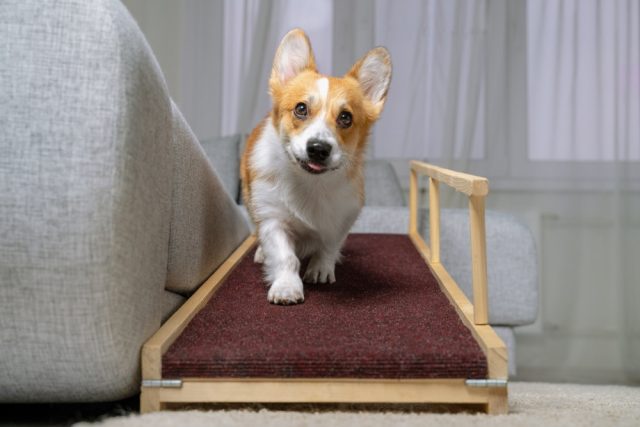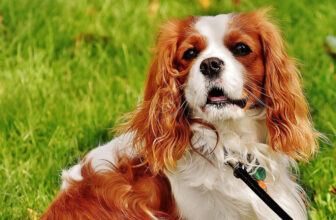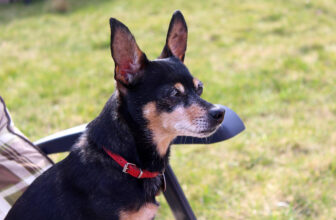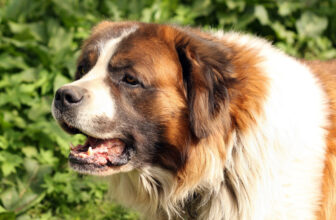
Check out our latest products
Living with a disabled dog can be one of the most rewarding experiences for pet parents. Whether your furry companion is blind, deaf, has limited mobility, or uses a wheelchair, specially-abled dogs deserve just as much joy, independence, and love as any other pet. With thoughtful adaptations, the right tools, and a compassionate mindset, you can create a home environment that is not only safe but also enriching for your disabled dog.
In this guide, we’ll walk you through practical home modifications, essential adaptive gear, and lifestyle tips to help ensure your specially-abled dog lives a comfortable, happy life.
Modify Your Home for Safety and Accessibility
Creating a supportive space starts with understanding your dog’s specific limitations and making simple changes to minimize risk and enhance mobility.
1. Ramps and Stairs for Mobility Issues
For dogs with arthritis, degenerative myelopathy, or limb amputations, dog ramps are a must-have. They allow access to beds, couches, and even vehicles without strain on joints. Place ramps:
-
Beside furniture they use regularly
-
On porches or stairs for easy outdoor access
-
With non-slip surfaces to prevent falls
Avoid traditional stairs where possible. If your dog must use them, install baby gates to restrict access and supervise movement.
2. Non-Slip Flooring
Hardwood, tile, and laminate can be slippery, especially for dogs with limited coordination or muscle weakness. Consider:
-
Rubber-backed rugs or carpet runners in high-traffic areas
-
Foam puzzle mats for a cushioned, stable play area
-
Avoiding waxed or overly polished surfaces
This helps reduce the risk of injury and boosts your dog’s confidence while moving through your home.
3. Clear Pathways for Blind or Mobility-Challenged Dogs
Keep your furniture arrangement consistent and avoid clutter in walkways. Dogs with vision impairments or wheelchairs rely on predictable spaces. Consider:
-
Bumper collars to help blind dogs detect obstacles
-
Padding sharp corners to prevent injury
-
Taping textured rugs near important areas (like food and water) as tactile cues
4. Low-Access Food & Water Stations
Raise or lower your dog’s bowls depending on their condition:
-
For neck/back pain or arthritis, elevated bowls may reduce discomfort.
-
For paralyzed or small disabled dogs, keep bowls low and within reach from a laying or wheelchair-accessible position.
Adaptive Gear to Improve Daily Life

Specially-abled dogs often benefit from specialized equipment that helps them move, rest, or interact more easily. Here are key categories of adaptive gear to consider:
1. Dog Wheelchairs and Mobility Aids
Dog wheelchairs offer independence to dogs with partial or complete hind limb paralysis. They support:
Wheelchairs are available in adjustable models to suit growing or fluctuating needs. Make sure to consult your vet or a canine rehabilitation specialist to ensure a proper fit.
Support harnesses can help dogs walk short distances or go up stairs by giving them a “boost” under the chest or hips.
2. Orthopedic Beds
For disabled dogs, quality rest is critical. Orthopedic dog beds made with memory foam provide joint support and distribute weight evenly. Look for:
-
Low-profile designs for easy entry/exit
-
Waterproof covers for incontinence
-
Bolster sides for dogs who need extra head or back support
These beds are especially helpful for dogs recovering from surgery or managing chronic conditions like hip dysplasia or arthritis.
3. Protective Gear
Some additional items to consider:
-
Booties or socks for traction and foot protection
-
Diapers or belly bands for dogs with incontinence
-
Cooling or heating pads for managing pain or inflammation
Always introduce gear gradually, rewarding your dog and monitoring for any signs of discomfort or skin irritation.
Enrichment and Emotional Support

Specially-abled dogs, like all dogs, need mental stimulation and affection. It’s essential to keep them emotionally engaged and confident in their environment.
1. Interactive Toys for Disabled Dogs
Adjust play based on ability:
-
For blind dogs: use toys with scent or sound (like squeakers or treat puzzles)
-
For deaf dogs: vibration or flashing light toys can capture attention
-
For mobility-impaired dogs: tug toys, stationary puzzles, and snuffle mats are great options
Toys should be safe, durable, and placed in accessible locations.
2. Training with Touch or Visual Cues
You can still train and communicate effectively with a disabled dog. Use:
-
Hand signals for deaf dogs
-
Touch-based cues for blind dogs (like tapping their shoulder to sit)
-
Clicker alternatives like flashlights or vibrations
Consistency is key. Reinforce desired behaviors with treats and praise.
3. Routine and Reassurance
Specially-abled dogs often feel more secure with predictable routines. Stick to consistent meal, potty, and walk times, and provide lots of affection. Dogs thrive on your attention and warmth, even if they can’t hear your voice or run like they used to.
A Life of Comfort, Joy, and Dignity
Your Specially-Abled Dog Deserves a Life Full of Love and Possibility
Caring for a disabled dog may come with unique challenges, but it also opens the door to a deeply rewarding bond. With thoughtful home modifications, adaptive gear, and plenty of love, your dog can thrive—physically, mentally, and emotionally.
By creating a supportive and accessible environment, you’re not just meeting their physical needs but enriching their spirit and preserving the precious connection you share.
Because every dog, no matter their ability, deserves to live a life full of dignity, joy, and tail wags.








![[5G & 2.4G] 2K Indoor Security Camera for Home Security, AI Voice Change for 2-Way Talk, Motion Detection, Night Vision, 24/7 SD Recording/Cloud Storage, WiFi Home Camera, Pet Cam with Phone App](https://i3.wp.com/m.media-amazon.com/images/I/61I2U+sTT3L._AC_SL1500_.jpg?w=300&resize=300,300&ssl=1)





